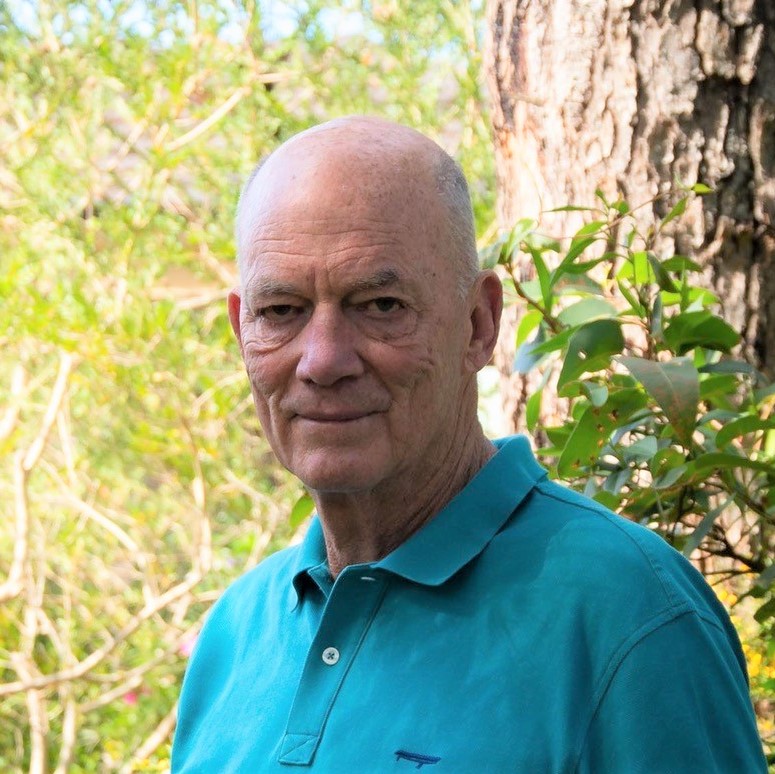Dr Peter Durey is a Mindful Margaret River board members and volunteers on one of our taskforce teams.
This short article is not intended to be provocative but instead stimulating, a light-hearted and simple exploration of issues relevant to men and the elderly in particular.
As a recently retired GP I have obviously had too much time to reflect, question and read.
Also, through my involvement with Mindful Margaret River, I have been involved with many other volunteers in areas mostly involving communication.
First, in trying to improve collaboration between mental health practitioners in our local community, and then, through a public workshop, a discussion on the ways to improve connections between people, facilitate empathy and effective caring.
Lastly, trying to address the other pandemic, the pandemic of increasing loneliness in modern society.
This issue has impacted elderly and single men in rural communities and is a significant issue in our area with ill-health, destructive behaviour and depressive illness often a result.
In response we have created a 2-hour workshop for small groups of men.
It’s called “LISTEN UP BLOKES”, with a subtitle, “How can us blokes be better understood, listen more and talk less!”.
The workshop provides an opportunity to learn new information and have discussions in a relaxed setting.
It covers four topic areas:
What are we talking about? We can all listen… or is there more to it?
Why bother? Are we already stuck in our ways, or could we change for the better?
When to listen and how to deal with someone’s feelings or decide when not to listen!
How to really listen and deal with assumptions and bias.
The ideas involve individuals taking personal responsibility but at the same time realising that we are social beings, and that connections and community are as important as our individual rights.
Real listening is the first step towards connection with another person, and that can lead to understanding and respect, as well as improved health.
When you really listen to a person, not only does that person feel acknowledged, he or she is more likely to share their concerns and worries.
We’ve all experienced the disheartening feeling when you want to share something important, and the other person is looking at their watch or phone all the time?
The key components of good listening are CURIOSITY, ATTENTION and EMPATHY.
To illustrate some of the principles I would like to stray into the areas of biology and philosophy and make rather simple punchlines that just might stimulate some reflection or discussion.
We have two ears and one mouth for a reason.
We learn from listening and never from talking.
And we cannot learn about life from reading a book.
We must interact with people and understand only 8 percent of a conversation involves the content of the words, 40 percent is made up by the volume and tone of the words and the rest (the majority) is non-verbal body language and so forth.
Is communication essential?
Can a human exist in isolation, or a baby grow without caring and love from a parent or other person?
Humans are composed of cells, 37 trillion, give or take a few.
Every cell in our body, to the very core of our DNA, has a drive and capacity to know its purpose, to find order and improvement inside the cell, and to communicate and relate to other cells.
As they say, it is in our genes, and they have been around for a few million years!
Does it help to understand how something works?
For us old blokes where cars and sport are the things that truly matter, it can help to use the analogy of the car engine and the benefits of understanding how it works, so that not only can the driver cope better in a breakdown, but also improve the performance of the vehicle and prevent wear and tear.
This idea can work with our bodies and minds. Do most men have their cars serviced more often than they have a check-up with their doctor?
Is it tough being a man?
The influence of society’s expectations of masculinity on a boy from a very young age is huge and we are moulded by messages of being tough, not getting emotional or showing our feelings, being decisive, acting first and thinking later, solving problems quickly and not complaining.
Well, ok we do complain sometimes!
Everyone has emotions, including your dog, cat and pet goldfish, but some humans have a problem understanding their emotions and showing their feelings.
While solitude can be good, isolation can be a worry and loneliness is a problem.
Loneliness is a consequence of political and social change, mixed with technology and consumerism, and is the most serious threat to a person’s health, wellbeing and mortality.
There is a 30 percent increase in premature death and dementia in lonely people… a higher percentage than smoking!
The solutions to this problem are very complex and involve mostly political and social change plus dedicated services.
Did you know the United Kingdom now has a Minister of Loneliness?
We don’t have to wait for Governments to fix this problem.
As individuals we can do our bit to help others just by offering a smile, a G’day or a listening ear.
Think about what matters most in life. What will be the most important things in the end?
Will it be wealth, fame and short-term pleasure?
Or will it be Truth, Freedom and Love?
It has been written that for Truth, you need to know yourself.
For Freedom, you have to honour yourself and for Love, you have to share your true self.
Mindful Margaret River is an alliance of mental wellbeing professionals, government agencies and community members aimed at promoting health and wellbeing in the AMR Shire. Mindful Margaret River is funded by Lotterywest and supported by the Shire of Augusta Margaret River. Find out more on our website mindfulmargarteriver.org.au and follow us on Facebook
First published in the Augusta Margaret River Mail 9 May 2022





